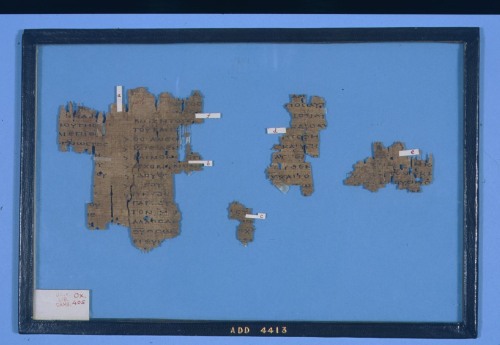- Joined
- Feb 15, 2013
- Messages
- 11,039
- Reaction score
- 2,035
- Location
- New Jersey
- Gender
- Male
- Political Leaning
- Very Conservative
Irenaeus of Lyons
Irenaeus is another important witness to the apostolic age, having sat under the teaching of Polycarp who had been appointed bishop of Smyrna by the apostle John. Irenaeus was a missionary to barbarians in Gaul (modern France) who supervised several churches in and around Lyons.In his famous treatise Against Heresies, he writes:
If anyone … says to us, "How then was the Son produced by the Father?" we reply to him that no one understands that production or generation … which is in fact altogether undescribable. (II:28:6)
Even more clearly, he says:
One God the Father is declared, who is above all … The Father is indeed above all, and he is the head of Christ, but the Word … is himself the head of the Church. (V:18:2)
There is one God, the Father over all, and one Word of God, who is through all, by whom all things have been made. (V:18:2)

an A.D. 200 manuscript from Irenaeus
Clement of Alexandria
Clement of Alexandria, not to be mistaken with Clement of Rome from a century earlier, wrote in the late 2nd century. He was a prolific writer who trained new Christians in Alexandria, Egypt.In a discussion on 1 John (Fragments of Clement of Alexandria: Comments on the First Epistle of John from The Ante-Nicene Fathers, vol. II), Clement discusses the generation of the Son of God:
When [John] says, "from the beginning," the elder explained to this effect, that the beginning of generation is not separated from the beginning of the Creator. For when he says, "That which is from the beginning," he touches on the generation without beginning of the Son, who is co-existent with the Father. There was, then, a Word importing an unbeginning eternity, as also the Word itself, that is, the Son of God, who being by equality of substance one with the Father, is eternal and uncreated.
When [John] says, "from the beginning," the elder explained to this effect, that the beginning of generation is not separated from the beginning of the Creator. For when he says, "That which is from the beginning," he touches on the generation without beginning of the Son, who is co-existent with the Father. There was, then, a Word importing an unbeginning eternity, as also the Word itself, that is, the Son of God, who being by equality of substance one with the Father, is eternal and uncreated.





